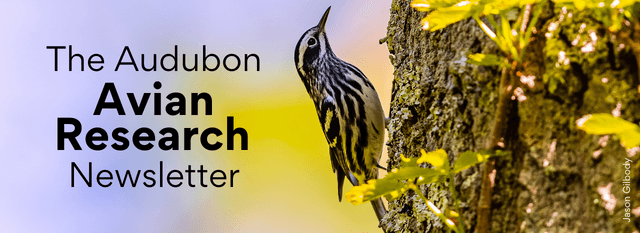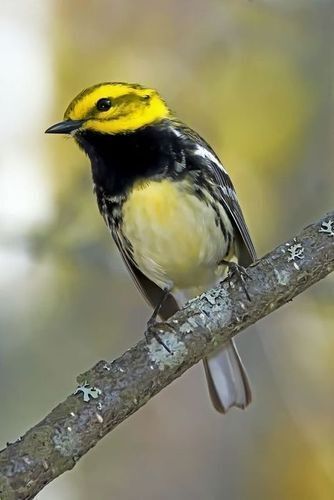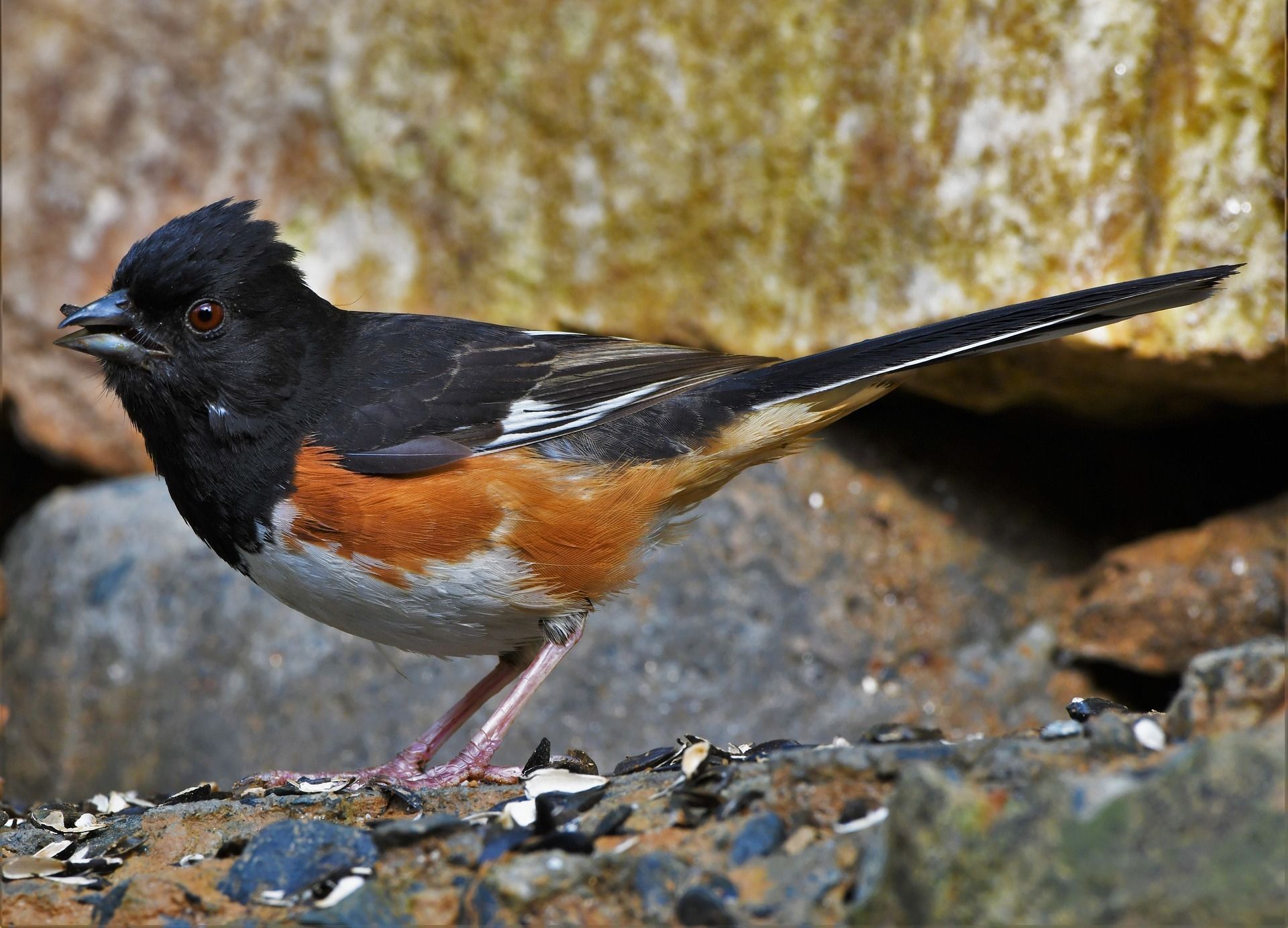
December 2022
The Audubon Avain Research Email Newsletter provides you with monthly updates outlining the work we are doing as part of the scientific research initiative at the Audubon Society of Rhode Island. You will also receive emails when we are in need of volunteers for projects. Suggestions and questions regarding the newsletter can be sent to Dr. Charles Clarkson, Audubon Director of Avian Research, cclarkson@asri.org.
Sign up to get the Audubon Avian Research Newsletter in your email inbox!
Happy holidays to all. As you celebrate the season, please take a moment to enjoy this update from the Audubon Society of Rhode Island Avian Research Initiative.
Birds Across New England: The Audubon Regional Conservation Symposium
Climate change, sea-level rise, habitat loss…these are the greatest threats to our bird populations, biodiversity more broadly and the health and wellbeing of humanity. Because they are global in scope, these issues often have a way of feeling “too big” for the average citizen to handle, often leading to feelings of hopelessness and surrender.
When you are overcome with these feelings, it is important to remember that, although our world faces seemingly insurmountable problems, resignation is perhaps the single most dangerous threat to progress. Should flood waters begin to rise in your home, you do not sit idle as your worldly possessions wash away. You do what you can to save those items most precious to you. There is always hope where there is action. Without your help, things will get worse. Each of us has a role to play in determining the future of our planet.
Over the past year, a tremendous amount of data has been collected by Audubon volunteers that is providing us with more information about our birds and the habitats they rely on than we’ve ever had. Each one of you, contributing a small amount of data, have collectively provided what we need to effectively manage our bird populations in the face of so much change. There is a great deal of power in a single, committed citizen. The “power of one” is real and, as a member of the Audubon Society of Rhode Island, you are living proof of this.
This January, the Audubon Society will host “Birds Across New England: The Audubon Regional Conservation Symposium”. The event, which will be held on January 28 from 9am – 4pm, will be the first of its kind within the region. The goal of the symposium will be to engage the general public, inform them of the bird conservation work being done throughout New England, and garner a commitment from researchers within the region to make efforts to collaborate on comprehensive regional conservation plans. By attending the symposium and learning about the work being done to save our birds, you will become part of a growing consciousness on the state of our biodiversity. Knowledge is power, and when you donate your time, money and energy to local and regional conservation projects, you will do so with a firm understanding of the needs and constraints of the work being done. This symposium is part of a much grander scheme to make you a more powerful advocate for our birds.
Nearly 20 researchers from Rhode Island, Connecticut, Massachusetts, Vermont, New Hampshire and Maine will come together at the Nature Center and Aquarium in Bristol to present on their work with large-scale volunteer data-driven demographic studies, coastal species conservation and bird energetics. Coffee, snacks and lunch will be provided throughout the day and a social hour will be hosted by our friends at Ragged Island Brewery in Portsmouth following the event.
If all goes according to plan, we hope to make this an annual event, aimed at keeping you updated with the newest findings, successes and setbacks for each research project. As the scientific capacity of the Audubon Society of Rhode Island grows, our role as stewards of our magnificent bird populations will begin to extend beyond the borders of our small state. It is important that you remain informed of not only the work being done here in Rhode Island, but within all of New England.
The registration for the inaugural science symposium hosted by the Audubon Society of Rhode Island is nearly filled. To find out more about the symposium and to register for the event, click the button below.
Baseline Data
Data Analysis Update: What we are learning about our birds
Analysis of our baseline data has been ongoing since November 1, when data collection officially ended. Over the past month, a great deal of information has come to light about our birds and the habitats they associate with when they visit our wildlife refuges. The compilation of these data into our very first “State of Our Birds” report will only be the first step in our Avian Research Initiative. The report and information contained therein will provide us with the tools we need to manage our wildlife refuges and habitats for years to come. Here is a synopsis of the core goals of the initiative:
Phase 1: Baseline Data Collection
The principal goal of the first year of the Avian Research Initiative was to collect basic data on the abundance and distribution of birds across our publicly accessible refuge complex. Combined with advanced statistical and habitat mapping techniques, these seemingly simple data can provide a wealth of information on the habitat associations of birds and their movement dynamics. The analysis of our data will lead to the creation of a first working document to be used internally at Audubon and distributed among our members. This document will guide our next steps at Audubon and will provide the first glimpse of just how important our refuges are to the species that breed, overwinter and migrate through our state.
To set the stage for future research at Audubon, a number of projects were also initiated during the first phase of our work. Collaboration with an analytical lab at URI has positioned Audubon to commence a large-scale pesticide monitoring program and the erection of a MOTUS tower at the Nature Center and Aquarium in Bristol will enable us to begin tracking birds as they move about our refuges and migrate through the region.
Phase 2: Building out and Testing Hypotheses
The analysis of our baseline data will tell us a great deal about our birds, but as with most scientific endeavors, it is likely to lead to many more questions than answers. While a significant amount of our overall landholdings occurs on our 14 large and publicly accessible refuges, Audubon manages over 100 parcels within the state. With the ultimate goal of surveying every parcel we manage, the first phase of our work will help focus our attention on a list of habitats and bird species that require more data and continued monitoring. As our dataset grows through continued surveys, we will also begin to test hypotheses based on what we learned in our first phase of the initiative. Examples include confirming bird-habitat associations through specific sampling regimes for select species, designing studies to determine effect of habitat patch size on bird occupancy (i.e. what is the minimum habitat patch size necessary to attract a given species) and determining what aspects of a given habitat make it most attractive to birds (topography, insect/fruit abundance, etc). The results of the baseline data analysis will guide these studies as they will highlight the most at-risk habitats and species that occur on our properties. Phase 2 will involve more volunteer surveys, additional point counts and the continued deployment of our Acoustic Recording Units (ARUs).
Personally, I am excited about the direction that Audubon is headed. The enthusiasm for the Avian Research Initiative has been palpable among our membership, the contribution of volunteer time and effort has been amazing and because of this, the future of our birds is a little brighter than it was a year ago. We are on our way towards something vital: a legacy for future generations of Rhode Islanders.



















